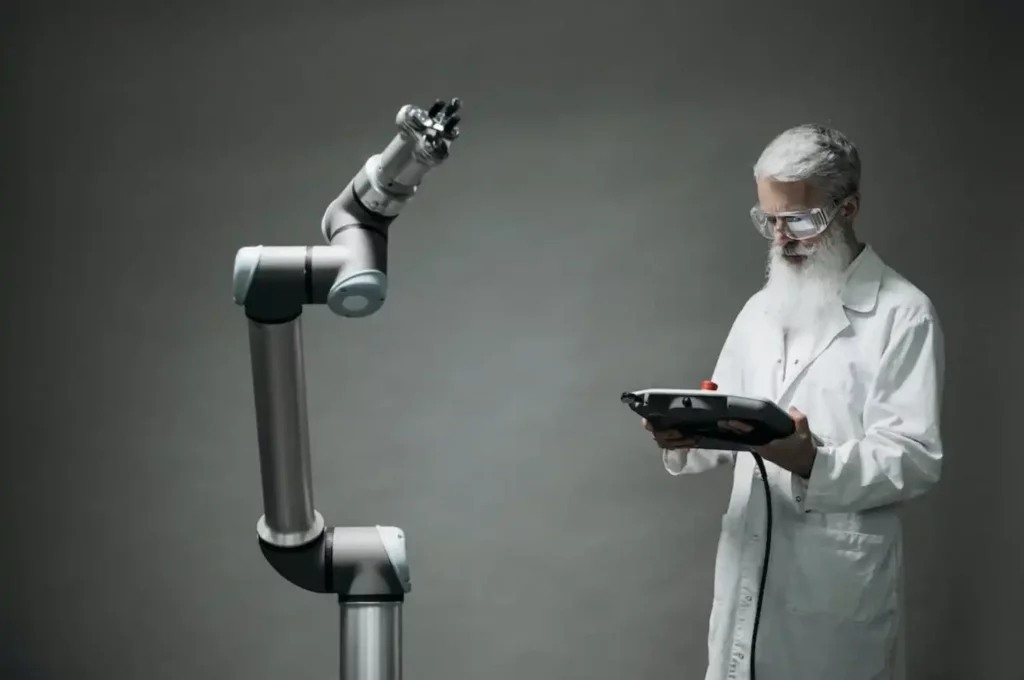MLOps is the process of rapidly and reliably integrating machine learning models into production systems. To accomplish this, data scientists should collaborate successfully, harnessing their combined experience and talents. This article explores the significance of teamwork in MLOps, analyzes the hurdles for data scientists, and offers practical solutions for encouraging effective team interaction.
Understanding MLOps: Bridging the Gap
Defining what is MLOps involves the flawless integration of machine learning models into the operational workflow of an organization. It includes several stages, such as data collection, model creation, deployment, monitoring, and continual improvement.
Successful MLOps operations allow data analysts to pool their expertise, skills, and views, resulting in enhanced model performance, shorter development cycles, and better decision-making.
Major Challenges in Collaborative MLOps
Communication and Knowledge Sharing
Data analysts often work on complex projects that require interdisciplinary collaboration. Maintaining clear discussions and information exchange among team members can be difficult, especially when working with specific terminologies and approaches.
According to an Opendatascience poll, more than 35% of ML practitioners identified communication and information sharing as one of the most complex issues they face in collaborative initiatives. It emphasizes the significance of developing effective discussion techniques and establishing an environment conducive to knowledge sharing.
Regular team meetings, the adoption of specialized technologies, and the implementation of documentation processes can all help to reduce these issues and foster quality conversation among data scientists.
Data Governance and Privacy
Teamwork in MLOps necessitates the responsible handling of sensitive data and adherence to privacy regulations. Balancing the need for data sharing and cooperation with data security and compliance requirements can be a complex challenge. Data scientists have to navigate the intricacies of data governance and privacy to ensure that data is appropriately protected throughout the collaborative process.
Organizations operating in regulated industries or handling personally identifiable information (PII) face additional challenges in facilitating collaboration while complying with privacy regulations like GDPR or HIPAA. Establishing robust data governance frameworks, implementing access controls, and employing encryption techniques are crucial steps in safeguarding data during collaboration.
Ensuring that all team members are aware of and adhere to the privacy and security protocols is essential to maintain trust, mitigate risks, and protect sensitive information.
Version Control and Reproducibility
Tracking and managing different versions of models, code, and data is crucial in MLOps. A partnership can become cumbersome if team members are not aligned in terms of version control practices and reproducibility standards. Data scientists often work on shared codebases and datasets, and maintaining consistency and reproducibility across various iterations and contributions is essential.
Version control solutions, such as Git, give a disciplined approach to tracking changes, managing different branches, and merging contributions from multiple team members in collaborative MLOps projects. Data scientists can effectively communicate, review each other’s work, and assure the reproducibility of experiments and models through the use of standardized version control techniques. It makes partnership easier, lowers disagreements, and improves the overall efficiency and quality of the MLOps workflow.

Strategies for Effective Collaboration
- Establishing clear goals and roles. A clear definition of project goals and individual roles within the team guarantees that team members understand their roles and can align their efforts toward common goals. Collaboration becomes more focused and productive when everyone understands their position and the desired results. It also helps to eliminate duplication of effort and gives the team a clear direction.
- Encouraging open communication. Promoting open and transparent communication channels facilitates knowledge sharing and reduces misunderstandings. Regular team meetings, virtual teamwork tools, and dedicated messaging platforms can foster a collaborative environment.
- Implementing version control and documentation. Adopting robust version control systems and documenting code, models, and experiments allow for easy tracking, reproducibility, and collaboration. It ensures that team members can leverage each other’s work and avoid unnecessary duplication of efforts.
- Creating feedback loops and continuous improvement. Seeking feedback from team members, stakeholders, and end users regularly aids in identifying areas for development, discovering new insights, and validating the success of models and solutions. Teams may update their models, boost cooperation, and generate greater outcomes by developing feedback systems and embracing a culture of continuous development. Code reviews, model assessments, user testing, and retrospectives can all be used to receive feedback, ensuring that efforts are iterative and adaptive.
- Embracing automation and DevOps practices. Using automation technologies and DevOps principles streamlines the MLOps workflow, encouraging cooperation and decreasing manual errors. Continuous integration and deployment, combined with the use of infrastructure as code, all contribute to a more efficient and collaborative development environment.
- Prioritizing a culture of continuous learning. Developing an environment of ongoing growth and knowledge sharing allows data scientists to stay current on improvements and share their findings with the team. Organizing workshops and seminars, as well as encouraging attendance at relevant conferences and forums, promotes collaboration and personal growth.
Conclusion
Data scientists can harness the collective intellect of their teams by solving obstacles, integrating successful techniques, and forming a collaborative culture, resulting in enhanced model performance, accelerated development cycles, and more creativity in the field of machine learning.
Remember that successful cooperation in MLOps is a continual process that demands active engagement, continuous progress, and adaptation. Data scientists can unlock the entire potential of MLOps and generate impactful outcomes in their organizations by embracing collaborative methods.




